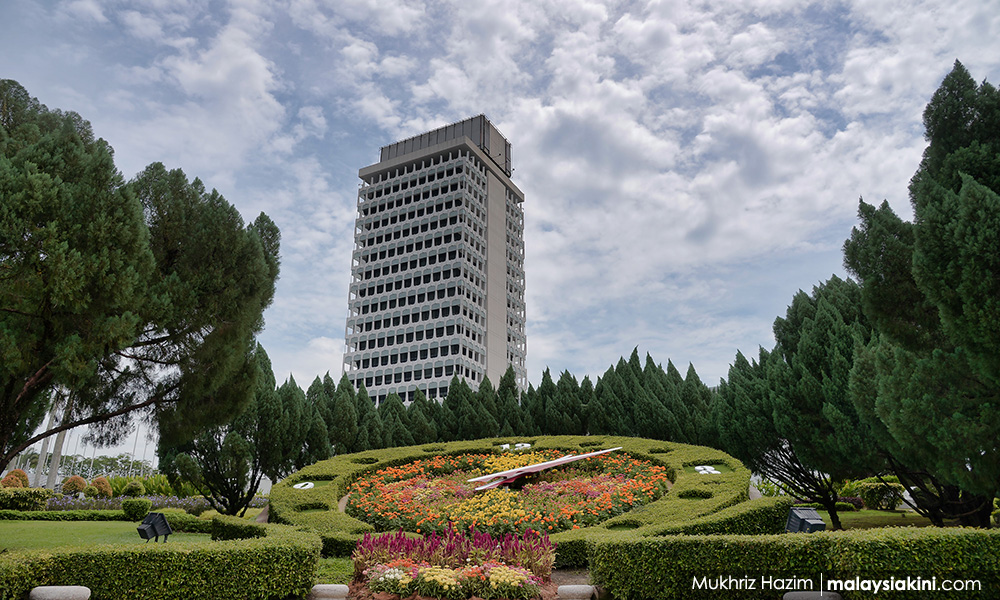There has been much discussion about the exorbitant pensions that MPs, ministers and state assemblypersons receive after the “expose” by KiniNews Lab last week.
The report drew criticisms against our system, which has allowed the MPs to enrich themselves all this while, especially when the rakyat is further burdened with the increasing costs of living.
From the poll conducted by Malaysiakini, 96 percent of the 8,035 respondents supported the idea that the MPs’ pension scheme should be abolished and that they should be diverted to the Employees Provident Fund (EPF) contribution as proposed by Prime Minister Anwar Ibrahim for new civil servants.
Ninety-three percent of the 7,778 respondents agreed that MPs and assemblypersons should only receive one pension, even though they might be eligible for multiple pensions under the current system.
The uproar against enriching politicians is obvious, given the great disparity in wages and inequality that exists in our society.
Pensions to accumulate wealth?
I am of the opinion that we should not apply the same rationale of multiple remunerations or salaries to pensions.
If the politician is currently exercising his or her duties as an MP, minister, and assemblyperson, then he or she should receive the allocated remuneration for each of the designations held.
However, this should not be the case for pensions. Pensions should serve to provide that steady income when you are retired and not able to be employed gainfully.
The concept of pensions was purposefully developed for working people to have a stable income after they are no longer capable of being employed and in recognition of their long service provided to the government.
Pensions should not be an avenue to accumulate wealth. So, how does it make sense for an MP to receive multiple pensions?
Furthermore, what is the rationale for MPs to be receiving pensions from their previous designations as ministers, deputy ministers, speakers or deputy speakers when they are still drawing remuneration (not retired) from their current position as MPs or assemblypersons?
The Member of Parliament Remuneration Act (1980) in the First Schedule 2(1) states that eligible pensions will commence only after MPs reach the age of 50 years old.
As we know, politicians continue to be active in politics and receive some form of remuneration as elected representatives well above their 50s. Here is where their current remuneration package runs parallel with their monthly pensions.
At a time when the larger population lacks any social security protection in the form of an old-age social pension, these lawmakers, who should have been enhancing social protection for the rakyat, have fought to keep their pension scheme intact.
Only a handful of MPs have stated that they are ready to do away with pensions. Currently, of the estimated 4.1 million senior citizens (above the age of 60), 56 percent are not covered under any pension scheme.
Furthermore, due to low wages during their employment years, EPF reported that nearly 52 percent of EPF contributors below the age of 55 have less than RM10,000 in their savings.
Here is where pensions are abused as “free money” monthly, even though they are already receiving lucrative remuneration and salaries.
Making of elite politician?
Hefty salaries and pensions have propelled the elected representative into the elite “bourgeoisie” class. A first-time MP being elected to the Dewan Rakyat will find himself or herself showered by an abundance of allowances and benefits on top of his or her sizeable salary.
An MP’s monthly salary of RM16,000 is topped up by a phone allowance, travel allowance, daily attendance allowance, meetings, workshops, briefings and seminars allowance.
This is in addition to a daily subsistence allowance of RM100 while on official duty within the country or RM170 outside Malaysia, a food allowance of RM340 for every night spent outside the country, hotel charges of not more than RM400 a night, a fuel allowance, a toll and entertainment.
Hence, this new “YB” is automatically propelled to the T20 income class. If the elected representative lacks strong principles and ideology, he or she will find himself or herself gradually being distanced socially from the very working-class voters who put him or her there in the first place.

In no time, he or she becomes a spokesperson for the bourgeoisie class.
This is how our Parliament system in a bourgeoisie democracy moulded elected representatives to “uplift” them from being amongst the majority working-class masses.
No wonder that these politicians are willing to fight tooth and nail to keep their position and privileges as legislators. The lucrative salary, perks and pensions pave the way to a lifelong and generous income.
At this juncture, we should remind ourselves of the lessons displayed by José Alberto "Pepe" Mujica, the past left-leaning president of Uruguay.

He is still known as the “poorest president” in the world after serving as the 40th president of Uruguay from 2010 to 2015.
During his tenure, he refused to live in the presidential palace, drove an old Volkswagen, and donated 90 percent of his salary so that his wages would only be equal to those of an average citizen.
His detachment from the upper class was clear when he did not hesitate to challenge the tobacco corporation, Philip Morris, to put in place tough anti-smoking laws, even when they threatened to sue the Uruguayan government for US$25 million.
Mujica is an example of an elected representative who refused to be bought over by the bourgeoisie. Hence, his moral compass stood with the working class and not the bourgeoisie.
Similarly, PSM chairperson Dr Michael Jeyakumar Devaraj shunned all perks and benefits when he served as the Sungai Siput MP from 2008 to 2018.

He refused to stay in hotels, opting only to stay at the YMCA. He too kept his 1980s Volvo 240, even though an MP could buy a new imported car with special AP (approved permits).
It is time that we do away with multiple pensions and make them into a single pension. That pension amount also needs to be capped at a reasonable rate according to their last drawn salary.
We should also look at reviewing the remuneration packages of these lawmakers in accordance with the current median wage.
I would propose that elected representatives should receive no more than five times the national median wage. When they retire, they should receive a single pension, calculated from their last drawn salary.
Politics should not be a career option to accumulate wealth and enrich their families for generations to come.
Becoming a politician and an elected representative of the people is a noble endeavour, where the representative should always place himself or herself in a similar economic status with his or her constituents to truly understand their challenges.
The current remuneration package and pensions in practice by our parliamentary system completely disassociate and make the elected representative apathetic to the needs of the majority of his or her constituents. - Mkini
A Sivarajan is the secretary-general of Parti Sosialis Malaysia
The views expressed here are those of the author/contributor and do not necessarily represent the views of MMKtT.




No comments:
Post a Comment
Note: Only a member of this blog may post a comment.